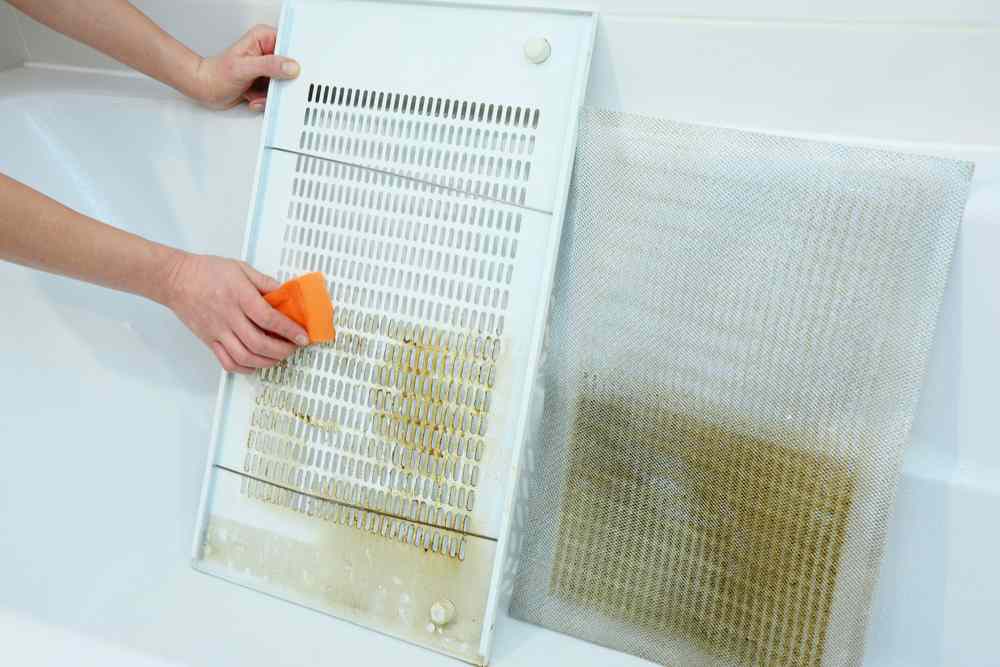DIY Kitchen Exhaust Cleaning Pros and Cons

Ontario-wide Kitchen Exhaust and Hood Cleaning – Best prices and service guaranteed.
Keeping your kitchen clean is essential for maintaining a healthy and hygienic environment. One area that often gets overlooked is the kitchen exhaust system. Over time, grease and grime can build up in the exhaust hood, ducts, and fans, leading to reduced efficiency and potential fire hazards. While hiring a professional cleaning service is the most common approach, some homeowners opt for a DIY kitchen exhaust cleaning. In this article, we will explore the pros and cons of DIY kitchen exhaust cleaning, providing valuable insights to help you make an informed decision.
Ontario-wide Kitchen Exhaust and Hood Cleaning – Best prices and service guaranteed.
The Pros of DIY Kitchen Exhaust Cleaning
1. Cost Savings
One of the primary advantages of DIY kitchen exhaust cleaning is the potential cost savings. Hiring a professional cleaning service can be expensive, especially if you require regular cleaning. By taking on the task yourself, you can save a significant amount of money in the long run.
2. Convenience
Another benefit of DIY kitchen exhaust cleaning is the convenience it offers. You can schedule the cleaning at a time that suits you best, without having to rely on the availability of a professional cleaner. This flexibility can be particularly useful for busy homeowners who have limited time to spare.
Ontario-wide Kitchen Exhaust and Hood Cleaning – Best prices and service guaranteed.
3. Learning Experience
DIY kitchen exhaust cleaning provides an opportunity to learn more about your kitchen ventilation system. By taking apart the exhaust hood, ducts, and fans, you can gain a better understanding of how they work and identify any potential issues. This knowledge can be valuable in troubleshooting problems in the future.
The Cons of DIY Kitchen Exhaust Cleaning
1. Lack of Expertise
One of the main drawbacks of DIY kitchen exhaust cleaning is the lack of expertise. Professional cleaners have the necessary training and experience to thoroughly clean and maintain the exhaust system. Without proper knowledge, you may not be able to remove all the grease and grime, leading to reduced efficiency and potential fire hazards.
Ontario-wide Kitchen Exhaust and Hood Cleaning – Best prices and service guaranteed.
2. Time and Effort
Cleaning a kitchen exhaust system is a time-consuming and labor-intensive task. It requires disassembling various components, scrubbing them thoroughly, and reassembling everything correctly. If you have a busy schedule or lack the necessary physical stamina, DIY cleaning may not be a practical option for you.
3. Safety Risks
Working with kitchen exhaust systems can be hazardous, especially if you are not familiar with the proper safety precautions. Grease buildup can be flammable, and improper handling of electrical components can lead to accidents. Professional cleaners are trained to mitigate these risks, ensuring a safe and efficient cleaning process.
Case Study: DIY vs. Professional Kitchen Exhaust Cleaning
Ontario-wide Kitchen Exhaust and Hood Cleaning – Best prices and service guaranteed.
To further illustrate the pros and cons of DIY kitchen exhaust cleaning, let’s consider a case study comparing a homeowner’s experience with DIY cleaning and professional cleaning.
John, a homeowner, decided to clean his kitchen exhaust system himself. He followed online tutorials and purchased the necessary cleaning supplies. However, despite his efforts, he struggled to remove all the grease and grime from the ducts and fans. As a result, the exhaust system continued to operate at reduced efficiency, and John was concerned about potential fire hazards.
Realizing the limitations of his DIY approach, John decided to hire a professional cleaning service for his next cleaning. The professionals thoroughly cleaned the exhaust system, removing all the grease and grime that John had missed. The system started operating more efficiently, and John felt more confident in the safety of his kitchen.
Ontario-wide Kitchen Exhaust and Hood Cleaning – Best prices and service guaranteed.
While DIY kitchen exhaust cleaning offers cost savings and convenience, it comes with its own set of challenges. Lack of expertise, time and effort required, and safety risks are some of the cons associated with DIY cleaning. Hiring a professional cleaning service ensures a thorough and efficient cleaning process, reducing the risk of fire hazards and improving the overall performance of the kitchen exhaust system. Ultimately, the decision between DIY and professional cleaning depends on your budget, availability, and willingness to invest time and effort into learning and performing the task yourself.
Learn more about “Advantages and Disadvantages of Cleaning Kitchen Exhaust Yourself” here.
Frequently Asked Questions about DIY Kitchen Exhaust Cleaning Pros and Cons

What are the Pros of DIY Kitchen Exhaust Cleaning?
Certainly, DIY kitchen exhaust cleaning has a range of benefits, most of which revolve around cost-efficiency and convenience. The most apparent advantage is the financial savings. Professional exhaust cleaning services can be expensive, ranging from $100 to $500 depending on the complexity and size of your system. When you handle the cleaning yourself, you only incur the cost of cleaning materials, most of which are often already available in your household or can be bought for a nominal amount.
Additionally, doing it yourself means you can schedule the cleaning whenever it suits you, without having to book an appointment and potentially wait for days or weeks for a professional to become available. This means immediate attention to a dirty or greasy exhaust, reducing the risk of fire hazards, and improving air quality in your kitchen more promptly.
What are the Cons of DIY Kitchen Exhaust Cleaning?
On the flip side, DIY kitchen exhaust cleaning has some significant disadvantages that cannot be ignored. The primary drawback is the lack of expertise. Professional exhaust cleaning services often follow the National Fire Protection Association (NFPA) guidelines to ensure optimal cleanliness and safety. Unless you are well-versed in these standards, you may miss critical spots, leading to suboptimal cleaning and a higher risk of fire hazards.
Moreover, the process can be messy and time-consuming, especially for someone who is inexperienced. You may also risk damaging your exhaust system if you are not careful with the cleaning agents you use or if you employ improper techniques. Last but not least, without the proper tools to reach difficult spots, you may never achieve the level of cleanliness that a professional can offer.
What Tools and Supplies Do I Need for DIY Kitchen Exhaust Cleaning?
For an effective DIY kitchen exhaust cleaning, you’ll need a few essential tools and supplies. These include a good quality degreaser, scrubbing brushes of various sizes, a plastic scraper, a bucket, old rags or towels, and rubber gloves to protect your hands from the cleaning agents. Some people also recommend using a shop vacuum to suck out any loose debris before starting the cleaning process. Always ensure that you’ve switched off the exhaust fan and covered any electrical components before starting the cleaning process.
How Often Should I Clean My Kitchen Exhaust If I’m Doing It Myself?
The frequency of cleaning your kitchen exhaust depends on several factors, such as how often you cook, the types of food you prepare, and whether you deep fry food. As a general rule, if you cook frequently, a monthly cleaning of the exterior and a bi-annual thorough cleaning of the entire system, including the ducts, is advised. Adhering to this schedule will help reduce the accumulation of grease and grime, thereby lessening the risks associated with dirty exhaust systems like fire hazards and poor air quality.
How Do I Know If My DIY Cleaning Is As Effective As a Professional Cleaning?
Determining the effectiveness of your DIY kitchen exhaust cleaning can be challenging without the right expertise and tools. Professional services often use specialized equipment to measure grease and particulate levels before and after cleaning, offering a quantitative measure of effectiveness. For DIY cleaning, you may have to rely on visual inspection and your sense of smell. If the exhaust system looks visibly clean and doesn’t emit any foul odors, you’ve likely done a satisfactory job.
However, keep in mind that even if your exhaust looks and smells clean, it may not meet the NFPA guidelines for fire safety. It is generally a good idea to have your kitchen exhaust system professionally inspected at least once a year, even if you prefer to handle the regular cleaning tasks yourself.
- DIY Kitchen Exhaust Cleaning Pros and Cons
- hood cleaning
- kitchen exhaust cleaning
- restaurant hood cleaning






